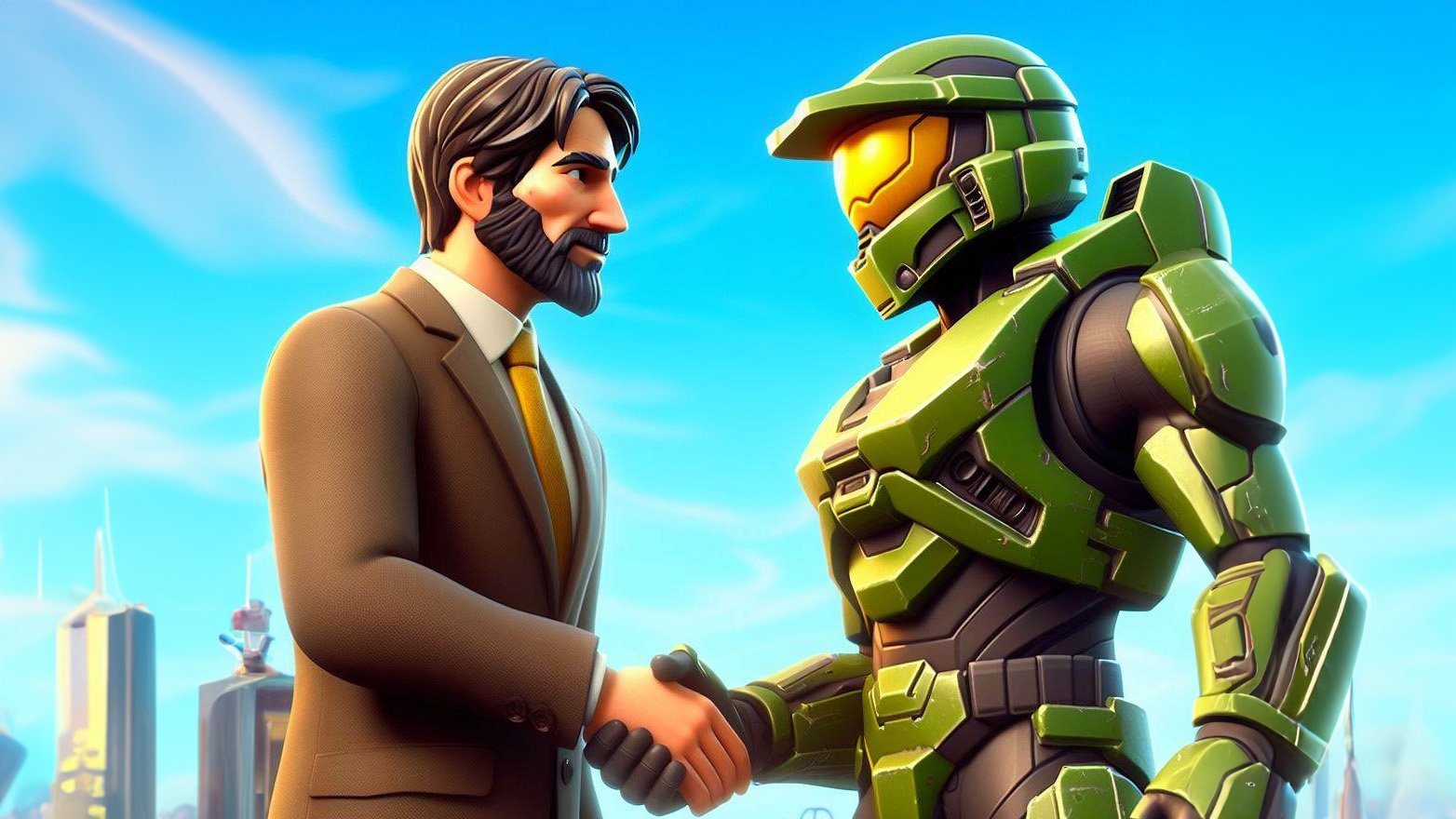'Congratulations to Microsoft on a well-deserved honor,' Epic and Fortnite's Tim Sweeney swoons for Microsoft and its market cap win over Apple 🤔
Epic Games' CEO Tim Sweeney has some high praise for Microsoft. But is there more to it? 🤔

All the latest news, reviews, and guides for Windows and Xbox diehards.
You are now subscribed
Your newsletter sign-up was successful
What you need to know
- Recently, Microsoft and Apple's market cap started to converge for the first time since 2021.
- Microsoft and Apple are both in battle for the world's most valuable company again, after Apple's iPhone sales disappoint and Microsoft's AI push generates hype.
- Apple nemesis and Unreal Engine afficionado Epic Games CEO Tim Sweeney recently congratulated Microsoft on the victory, in an interestingly gushing reaction.
The world's most historic and prolific tech rivalry is heating up recently, as Microsoft and Apple duke it out for the market capitalization top spot.
The prestigious "worlds' most valuable company" award reflects the amount of money invested in publicly traded firms, and Microsoft and Apple have been converging on the top spot for the first time in years. Microsoft briefly passed Apple's market capitalization a couple of times this week, and if trends continue, Microsoft could be on a path to a more permanent fixture at the top of the global leader board. Apple's share price has slid in recent months owing to "disappointing" sales of its hardware line up, and its prospects beyond that look a little unclear. Microsoft on the other hand is riding a hype train of AI-generated business services, with both firms now hovering over an eyewatering 2.8 trillion dollar market cap.
Microsoft found itself winning praise from an old critic as a result, although the source might not be too surprising if you know the history. Here's what Epic Games' CEO Tim Sweeney had to say about Microsoft's accolade, while taking swipes at Apple and Google in the process.
"Congratulations to Microsoft on a well-deserved honor," Sweeney said, "from Bill Gates to Steve Ballmer to Satya Nadella, they have a 50-year track record of supporting and empowering developers to do great work, while respecting developer and user freedom. A sharp contrast to Apple and Google."
Congratulations to Microsoft on a well-deserved honor. From Bill Gates to Steve Ballmer to Satya Nadella, they have a 50-year track record of supporting and empowering developers to do great work, while respecting developer and user freedom. A sharp contrast to Apple and Google. https://t.co/myimDquZnNJanuary 11, 2024
Epic Games has been in some prolific court cases with Apple and Google both in recent years. Epic Games failed to convince the courts that Apple had acted in an anti-competitive manner by removing Fortnite from the iOS app store, when Fortnite opted to include its own payment systems. However, Epic Games did convince a court that Google had violated Epics' rights, which could lead to ramifications for the Google Play Store.
By contrast, Windows has always been an open platform. Developers like Epic Games, and indeed Apple and Google too, have hugely benefitted from the fact anyone can put an app or game onto Windows and generate income for themselves, without Microsoft taking a cut. Apple and Google by contrast tax developers anywhere up to 30% of all their App Store and Google Play developers, severely hindering innovation on those respective platforms. It's particularly true in the case of Apple, who enjoy big margins on their iProducts, in a world where they are the sole creators of App Store endpoints and hardware.
An end to the mobile duopoly
Sweeney's praise of Microsoft was more of a dig at Apple and Google really, but Sweeney, Epic Games, and other major mobile game developers may be in for some luck in the coming months.
All the latest news, reviews, and guides for Windows and Xbox diehards.
The European Union is about to force so-called "gatekeeper" companies to adopt a Windows-like structure for software development, and other markets like Japan and the UK are likely poised to follow. This means that Apple would have to open up iDevices to the sideloading of apps, allowing Fortnite to fully bypass Apple's developer payment tax systems. This will lead to more revenue going to the people who actually create these games and services, and less going straight into the pockets of company like Apple to squander on things like a failed car push, $700 PC wheels and $5000 face computers literally nobody will buy.
Read: Microsoft's Windows Phone revenge: building a competing mobile game and app store
Microsoft is already lining up its pieces to take advantage of this brave new world. Microsoft is known to be developing an Xbox game store specifically for mobile devices. Microsoft will leverage its franchises like Hearthstone, Diablo Immortal, Call of Duty Mobile, Candy Crush Saga, Minecraft, and Xbox Cloud Gaming to buoy the store, and third-party developers like Epic Games and Tim Sweeney are likely already on board. I suspect Microsoft will try to lure mobile game developers across with more competitive payment fees, and also leverage the Xbox Game Pass subscription service to attract content away from Apple and Google, who are largely hated by app developers for their extortionate taxes.
2024 is going to be an interesting year for Microsoft and mobile devices.

Jez Corden is the Executive Editor at Windows Central, focusing primarily on all things Xbox and gaming. Jez is known for breaking exclusive news and analysis as relates to the Microsoft ecosystem — while being powered by tea. Follow on X.com/JezCorden and tune in to the XB2 Podcast, all about, you guessed it, Xbox!

